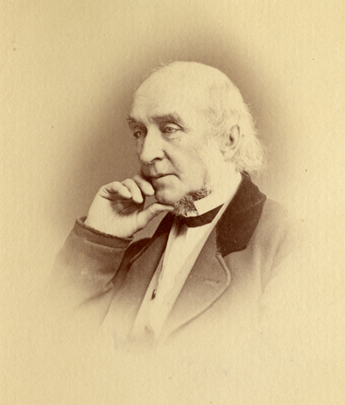- William Ellery Channing (poet)
: "This article is about William Ellery Channing, the Transcendentalist poet. For the Unitarian theologian, see
William Ellery Channing ."Infobox Writer
name = William Ellery Channing

caption = William Ellery Channing, 1818-1909
birthdate =June 10 ,1818
birthplace = Boston,Massachusetts ,United States
deathdate =December 23 ,1901
deathplace = Concord,Massachusetts ,United States
occupation = PoetWilliam Ellery Channing (
June 10 ,1818 –December 23 ,1901 ) was aTranscendentalist poet , nephew of the Unitarian preacher Dr.William Ellery Channing . (His namesake uncle was usually known as "Dr. Channing," while the nephew was commonly called "Ellery Channing," in print.) The younger Ellery Channing was thought brilliant but undisciplined by many of his contemporaries.Amos Bronson Alcott famously said of him in 1871, "Whim, thy name is Channing." Nevertheless, the Transcendentalists thought his poetry among the best of their group's literary products.Life and work
Channing was born in
Boston, Massachusetts to Dr. Walter Channing, a physician andHarvard Medical School professor. He attendedBoston Latin School and later theRound Hill School inNorthampton, Massachusetts , then enteredHarvard University in 1834, but did not graduate. In 1839 he lived form some months inWoodstock, Illinois in a log hut that he built; in 1840 he moved toCincinnati . In 1841 he married Ellen Fuller, the younger sister of transcendentalistMargaret Fuller , and they began their married life inConcord, Massachusetts where they lived a half-mile north ofThe Old Manse asNathaniel Hawthorne 's neighbor.In Concord he devoted himself to poetry and chopping wood. He was befriended by
Henry David Thoreau , and praised and often published in "The Dial " byRalph Waldo Emerson . Some speculation identifies him as the "Poet" of Thoreau's "Walden "; the two were frequent walking companions.Channing wrote to Thoreau in a letter: "I see nothing for you on this earth but that field which I once christened 'Briars;' go out upon that, build yourself a hut, and there begin the grand process of devouring yourself alive. I see no alternative, no other hope for you." Thoreau adopted this advice, and shortly after built his famous dwelling beside
Walden Pond .In 1843 he moved to a hill-top in Concord, some distance from the village, and published his first volume of poems, reprinting several from "The Dial." Thoreau called his literary style "sublimo-slipshod." Noted anti-Transcendentalist
Edgar Allan Poe reviewed it with a sting:In 1844-1845, Channing separated from his family and restarted his wandering, unanchored life. He first spent some months in
New York City as a writer for the "Tribune", after which he made a journey toEurope for several months. In 1846 he returned to Concord and lived alone on the main street, opposite the house occupied by the Thoreau family and then by Alcott. During much of this time he had no fixed occupation, though for a while, in 1855-1856, he was one of the editors of the "New Bedford Mercury". After enumerating his various wanderings, places of residence, and rare intervals of employment, his housemate Frank B. Sanborn wrote of him:In 1873 Channing was the first biographer of Thoreau, publishing "Thoreau, the Poet-Naturalist".
Death
Channing died
December 23 ,1901 in Concord. He is buried at theSleepy Hollow Cemetery, Concord on Author's Ridge directly facing his longtime friend Thoreau.External links
* [http://www.concordnet.org/library/scollect/Emerson_Celebration/Em_Con_32.html A brief Channing biography] from the Concord Free Public Libraries
* [http://thoreau.eserver.org/channing.html Ellery Channing Remembers Henry Thoreau]
Wikimedia Foundation. 2010.
